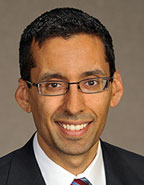Syria Study Group
The Syria Study Group (SSG) was established by Congress with the purpose of examining and making recommendations on the military and diplomatic strategy of the United States with respect to the conflict in Syria. The SSG is a bi-partisan working group composed of 12 participants each appointed by a member of Congress for the duration of the study.
The U.S. Institute of Peace was mandated by Congress to facilitate the Syria Study Group based on USIP’s demonstrated expertise in convening Congressionally-directed study groups. Please note that the content of the report is solely that of the Syria Study Group and does not represent the views of USIP.
Over the course of the past several months, the SSG reviewed current U.S. objectives and the desired end state in Syria. This included conducting a comprehensive assessment of the current situation, its impact on neighboring countries, the resulting regional and geopolitical threats to the U.S., and current military, diplomatic, and political efforts to achieve a stable Syria. The Group submitted the final consensus report with the SSG’s findings to Congress on September 24, 2019.

Public Event
Co-Chairs
Michael Singh is the managing director of the Washington Institute for Near East Policy, a nonpartisan think tank dedicated to advancing American interests in the Middle East. Mr. Singh was senior director for Near East and North African Affairs at the White House from 2007-2008, and director for several Middle Eastern countries, including Iran and Syria, on the NSC staff from 2005-2007.
Earlier, Mr. Singh served as special assistant to Secretaries of State Colin Powell and Condoleezza Rice, as well as staff aide to the US ambassador to Israel. He co-chaired Gov. Mitt Romney’s State Department transition team in 2012, and served as a Middle East advisor to the Romney presidential campaign from 2011-2012.
Mr. Singh has served as an adjunct fellow at the Belfer Center for Science and International Security at Harvard’s Kennedy School of Government and as an economics instructor at Harvard College. His writings have appeared in the Washington Post, New York Times, Wall Street Journal, Foreign Affairs, the Economist, International Security, and elsewhere, and he has appeared as a commentator on CNN, NBC, Fox News, and other outlets.
He earned his bachelor’s degree in economics summa cum laude from Princeton University and an MBA with high distinction (Baker Scholar) from Harvard University.
Dana Stroul is a senior fellow in The Washington Institute's Beth and David Geduld Program on Arab Politics. She previously served for five years as a senior professional staff member on the Senate Foreign Relations Committee, where she covered the Middle East, North Africa, and Turkey. In that capacity, she played a central role in the oversight of the State Department and the U.S. Agency for International Development, which included overseeing U.S. foreign assistance and weapons sales, as well as crafting relevant legislation.
Before working on Capitol Hill, Stroul served in the Middle East policy office of the Secretary of Defense. From 2008 to 2013, she focused on a range of topics including U.S.-Egypt relations, the U.S. military drawdown in Iraq, and a review of U.S. government policies and programs in the aftermath of the Arab Spring. In addition, Stroul also worked at the U.S. Embassy in Cairo on economic-political affairs, at the U.S. Institute of Peace on civilian-military relations in Iraq, and at the National Democratic Institute on Gulf Affairs.
Syria Study Group Executive Director
Mona Yacoubian
Senior Advisor for Syria, Middle East and North Africa, U.S. Institute Peace
Members
- LTG Charles Cleveland (U.S. Army, Ret.)
Adjunct, RAND Corporation
Former Commanding General, U.S. Army Special Operations Command (USASOC) - Ms. Melissa Dalton
Senior Fellow and Deputy Director, International Security Program, Center for Strategic and International Studies - Ambassador Frederic Hof
Diplomat in Residence, Bard College
- Dr. Kimberly Kagan
Founder and President, Institute for the Study of War
- Dr. Mara Karlin
Director of Strategic Studies, Johns Hopkins School of Advanced International Studies
Nonresident Senior Fellow, The Brookings Institution
- The Honorable Mark Kirk
Former U.S. Senator, Illinois
- Ambassador Anne Patterson
Former Assistant Secretary of Near East Affairs, U.S. Department of State
- Dr. Dafna Rand
Vice President for Policy and Research, Mercy Corps
- Mr. Vance Serchuk
Senior Adjunct Fellow, Center for a New American Security
- Mr. Christopher Tuttle
Managing Director, Council on Foreign Relations
For too long, the United States has lacked and overarching strategy to respond to the tragic civil war in Syria, which is why I’m very pleased that the Syria Study Group will soon begin its critical work. Now more than ever, we need a thorough and independent top-to-bottom review of U.S. policy in Syria. I’m very grateful for the willingness of the distinguished experts to serve on this panel and for the help of bipartisan congressional leadership, including the late Senator John McCain, who helped shepherd this provision through the Senate. I believe that having a strategy at long last will be a great testament to Senator McCain’s legacy, and I look forward to reviewing the group’s recommendations.








